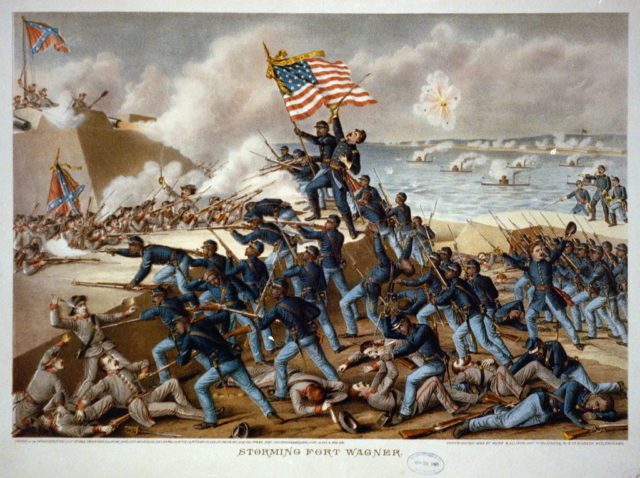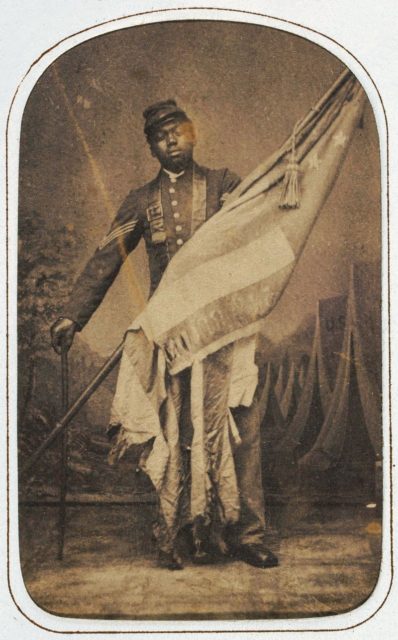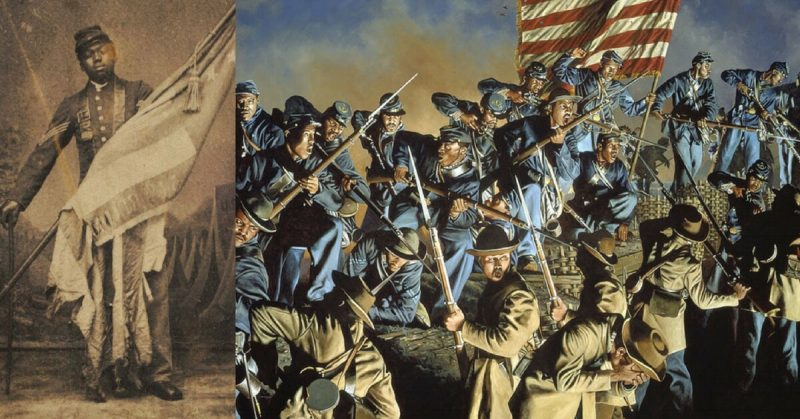Historically, black soldiers in the US military had to fight tooth and nail to gain any respect. The desire to prove themselves saw black units among the highest achieving groups, specifically in the world wars.
As racial barriers have reduced over the years, awards have been granted in retrospect to those who were denied them based on their race. However, Civil War soldier William Harvey Carney lived long enough to be awarded the Medal of Honor in 1900. He was the first living African-American to be awarded the honor.
Carney was born into slavery in Virginia but escaped to the north. In 1863 at the age of 23, he joined the 54th Massachusetts Infantry. Five months later, he saw action at the assault on Fort Wagner. Those that have seen the film Glory will be familiar with the battle. Ultimately the assault was a failure, but it heavily showcased the bravery of black troops in one of the few opportunities they had.

The Union assault on the Fort suffered 30% casualties. One of those killed near William Carney was a color guard/flag bearer John Wall.
Few times in its history has the star-spangled banner held so much significance as it did to William Carney at that moment. The flag represented Carney’s freedom as only a former slave could appreciate, as well as the unity of a nation embroiled in a civil war.
Also, there was the high honor of protecting the colors. This is a national symbol of a tradition of protection until death that goes back to the eagles of the Roman legions. A fleeing unit has shame, but nothing compared to abandoning the flag.

Seeing his comrade hit, Carney preserved yet another honor of the flag by preventing it from touching the ground as Sergeant Wall fell dead. Almost immediately, Carney was shot through the leg, yet he remained standing with the flag.
Instead of retreating to get medical attention, Carney hoisted the flag high and marched towards the Fort despite sustaining serious wounds. When the Union forces were compelled to retreat, he struggled back across the battlefield.
He was shot in the chest, arm and again in the leg during his retreat but refused to let the colors touch the ground.

When another bullet caused a grazing wound to his head, Carney still refused to let the flag go. He refused help from a soldier from another regiment. As it was the flag of the 54th – only a member of the 54th should carry it.
When he finally reached the safety of his retreated regiment, Carney passed on the flag and collapsed, saying “Boys, I only did my duty. The flag never touched the ground.”
Although wounds of Carney’s nature were often a death sentence during the Civil War, he recovered and kept all his limbs. He posed with the very same flag for a picture before being medically discharged and becoming a mail carrier in Massachusetts.
At age 60, Carney finally received the Medal of Honor for his actions. He passed away eight years later. He was a symbol of pride for US black troops for generations. He showed that no matter the prejudice of the period, a man can still be recognized with pride for going above and beyond the call of duty.
